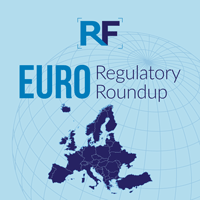Euro Roundup: MHRA shares guidance on coordinated assessment pathway for device trials
 Biologics/ biosimilars/ vaccinesBiotechnologyEuropeMedical DevicesPharmaceuticalsProduct LifecycleRegulatory Intelligence/Policy
Biologics/ biosimilars/ vaccinesBiotechnologyEuropeMedical DevicesPharmaceuticalsProduct LifecycleRegulatory Intelligence/Policy Biologics/ biosimilars/ vaccinesBiotechnologyEuropeMedical DevicesPharmaceuticalsProduct LifecycleRegulatory Intelligence/Policy
Biologics/ biosimilars/ vaccinesBiotechnologyEuropeMedical DevicesPharmaceuticalsProduct LifecycleRegulatory Intelligence/Policy